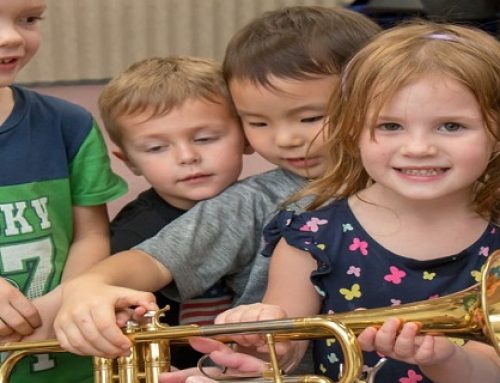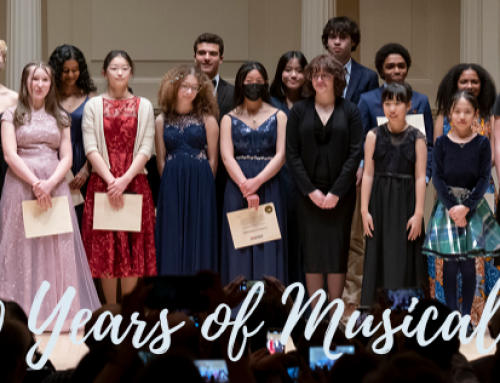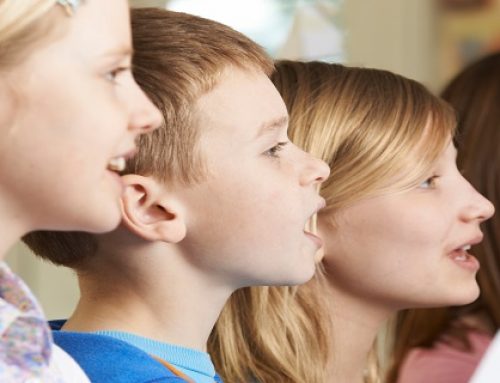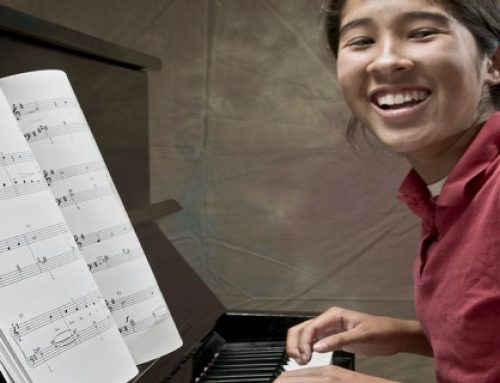As society has become more technologically inclined, parents have struggled with balancing their kids’ screen time against other priorities such as homework, music lessons, social time with friends, and family time. Screen time is often used as a reward for completing daily tasks such as homework, practicing, and completing household chores. As we fight for our kids to sit down and practice in the rush of all of the daily engagements, let’s entertain the possibility of combining screen time and music learning via gamification (education through games).
Believe it or not, we have already become conditioned to find motivation through gaming in our daily lives. Other non-educational apps, such as Reddit, Foursquare, and Nike, use the concept of gaming as a means of promoting correct use of their products. The traffic app Waze, for example, awards points to drivers and passengers for informing other users of road obstacles, traffic, and accidents.
Of course, age-old thought asserts that music study requires engrossed, concentrated focus, free from distractions. It would be safe to assume that video games (or fun in general) are the antithesis of this required focus. However, if you’ve ever waved your hand in front of your kid’s face to get them to peel their eyes off the iPad and look at you “for just one second, Tommy! PLEASE,” you’d understand that today’s kids dedicate that exact kind of focus and energy to gaming.
For those doubters, consider the following: Gaming requires the following Components of Play:
- Curiosity
- Discovery
- Obstacle assessment
- Goal–calculating
- Time management
- Risk-taking
- Drive to succeed
- Motivation through reward/positive reinforcement
- Patience to try again
Games provide instant feedback, forcing us to come up with an immediate solution to the problem at hand. We’re further motivated to continue playing when we achieve a high score or unlock a new territory. Are these not the same skills we need to learn a new song and achieve mastery on our instruments?
One study showed that students who were presented with music lessons and instruction through gaming made more progress than students who learned in a didactic, teacher-led lesson. The same could be said about practice; when students are presented with small, leveled challenges, they are more likely to feel successful.
Think back to our most recent Halloween recital here at the International School of Music (video below). Our Halloween Recital is one of the most anticipated and well-attended recitals of the year. Why is that? In addition to taking time to celebrate their hard work, students dressed up and competed for prizes for best dressed, and all students went home with a goody bag. How’s that for positive reinforcement to keep learning and practicing?
Check out some clips of smiling faces from this year’s Halloween Recital below:
Ultimately, when students enjoy their music lessons, they’re motivated to practice and make more progress. But should tablets replace paper homework, social interactions, and experiencing life outside the screen? Definitely not, but with the right resources, gaming is a relevant and critical tool to supplement in-class music learning.
WANT TO KNOW MORE?
Gamify your child’s music education and schedule a lesson at the International School of Music today! Send inquiries to:
info@ismw.org
(301) 365-5888
OTHER MUSIC LEARNING GAMING RESOURCES
- Guitar Hero (and other similar video games): A video game not just for guitar, music teachers have surprisingly told us that this musical video game has inspired many budding musicians who have mastered the game and are looking to play a real live instrument!
- Joytunes: This Apple and Android friendly company has three “teacher and parent approved” apps to support the music lesson environment, in which you can have the app listen to your student on his/her instrument and score the piece’s accuracy to gain points.
- Extra Credits: This YouTube Channel not only teaches important school facts through gaming, but also, in its earlier publications, speaks to how gaming can assist learning.






